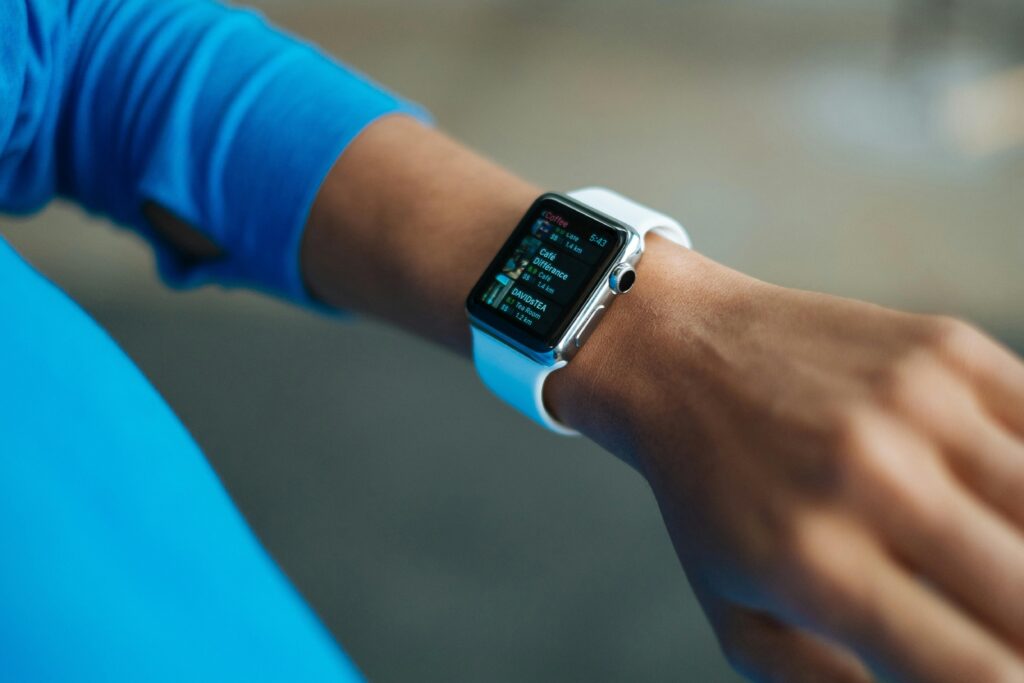
Newsletter Subscribe
Enter your email address below and subscribe to our newsletter

Ah, the joys of modern technology! We live in a world where you can have a conversation with your refrigerator, your doorbell can shame you for not answering it in time, and now, you can get a Fitbit for free through your Medicare Advantage plan.

Yes, you read that right—a free Fitbit. But hold on to your dentures, because there’s a catch (or three).
Let’s dig in so you know what the heck a Fitbit is, how you may be able to get a free one and why you may not want to.
A Fitbit is one of those nifty little devices that you strap to your wrist, and it acts like a tiny, persistent personal trainer. It counts your steps, monitors your heart rate, tracks your sleep, and even has the audacity to remind you to get up and move when you’ve been lounging too long.
It’s basically the electronic equivalent of that one friend who’s always telling you to exercise more. But in a nice way.
Fitbits offer a host of benefits, especially for seniors. They help you keep track of your physical activity, which can be motivating if you’re aiming to stay fit or improve your health.
As just mentioned, they can monitor your heart rate, provide reminders to move, and even track your sleep patterns.
In other words, a Fitbit can help you stay on top of your health without having to memorize the names of all your pills or remember to write down your daily exercise.
Plus, they’re small, lightweight, and don’t require you to wear those giant sweatbands from the ’80s.
Now, the magic words: free Fitbit.

Many insurance companies, including some Medicare Advantage plans, are now offering fitness programs that either provide a complimentary fitness tracker or give you ways to earn one.
This sounds fantastic… like finding out you get free refills on coffee at your favorite diner. But there’s a bit more to it.
United Healthcare is one of the providers that offer a free Fitbit. Members of their Medicare Advantage Plan can get a free one every 2 years.
After accumulating enough workout credits in their app, you can earn a Fitbit or Apple Watch. Think of it as earning enough brownie points, but for sweating instead of baking.
Aetna offers a mostly free Apple Watch. You do need to pay an activation fee and sales tax, and then earn points through your fitness activities to cover the rest of the cost over 24 months.
So, it’s like getting a free puppy, but you still have to buy the dog food and take it for walks.
Cigna gives you a 25% discount on an Active&Fit subscription, which includes a promo code for a free Fitbit or Apple Watch. You’ll have to pay for the monthly subscription, but hey, if you were planning to be active anyway, this could be a good deal.
Anthem Blue Cross Blue Shield offers 22% off a Fitbit and a free year of Fitbit Premium. It’s not entirely free, but if you’ve ever tried to haggle with the clerk at a big-box store, you know a discount is better than nothing.
Humana has a program called Go365, where you earn credits for workouts that can be exchanged for rewards like a Fitbit or Garmin. However, the specifics are a bit murky, like trying to understand a teenager’s text messages.

Alright, now for the “but…” part.
While these free or discounted devices sound fantastic, there’s usually a bit of a trade-off.
When you get these Fitbits or Apple Watches through your insurance company, you’re often required to share your health and activity data with them.
This includes your steps, sleep data, heart rate, and possibly even more detailed information.
Take United Healthcare, for example. Their privacy policy is like a nosy neighbor with binoculars: they want to know everything.
They can collect data from your activity tracker, your phone’s health app, and even your camera use and local storage.
Now, if you’re already using their health apps, you’re likely not giving them much new information. But if not, you’ll want to weigh your privacy vs. getting cool free stuff.
So, is it worth it? That’s up to you.
If you value your privacy above all else, you might want to think twice.
But if you’re already sharing your data with your insurance company through their apps, or if you just can’t resist the allure of a free Fitbit, it might be a worthwhile trade-off.
Getting a free Fitbit through your Medicare Advantage plan can be a great way to stay active and monitor your health without spending a dime—initially, at least. Just remember to read the fine print and consider the implications of sharing your data. After all, there’s no such thing as a free lunch, or in this case, a free step counter.
So, lace up those sneakers, strap on that Fitbit, and get moving. Just don’t be surprised if your insurance company starts cheering you on—or reminding you to take a few more steps before you sit down to watch your favorite show.